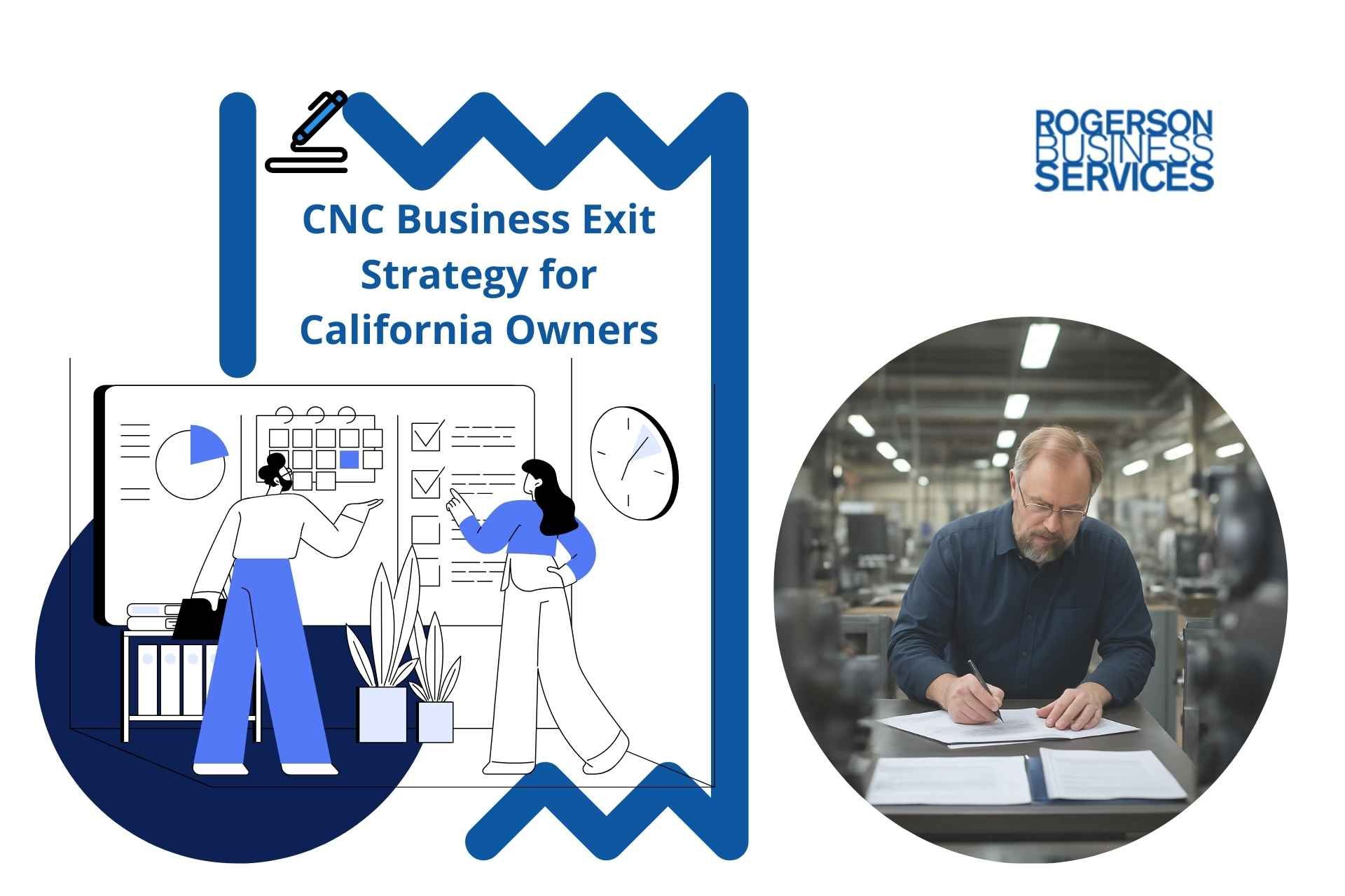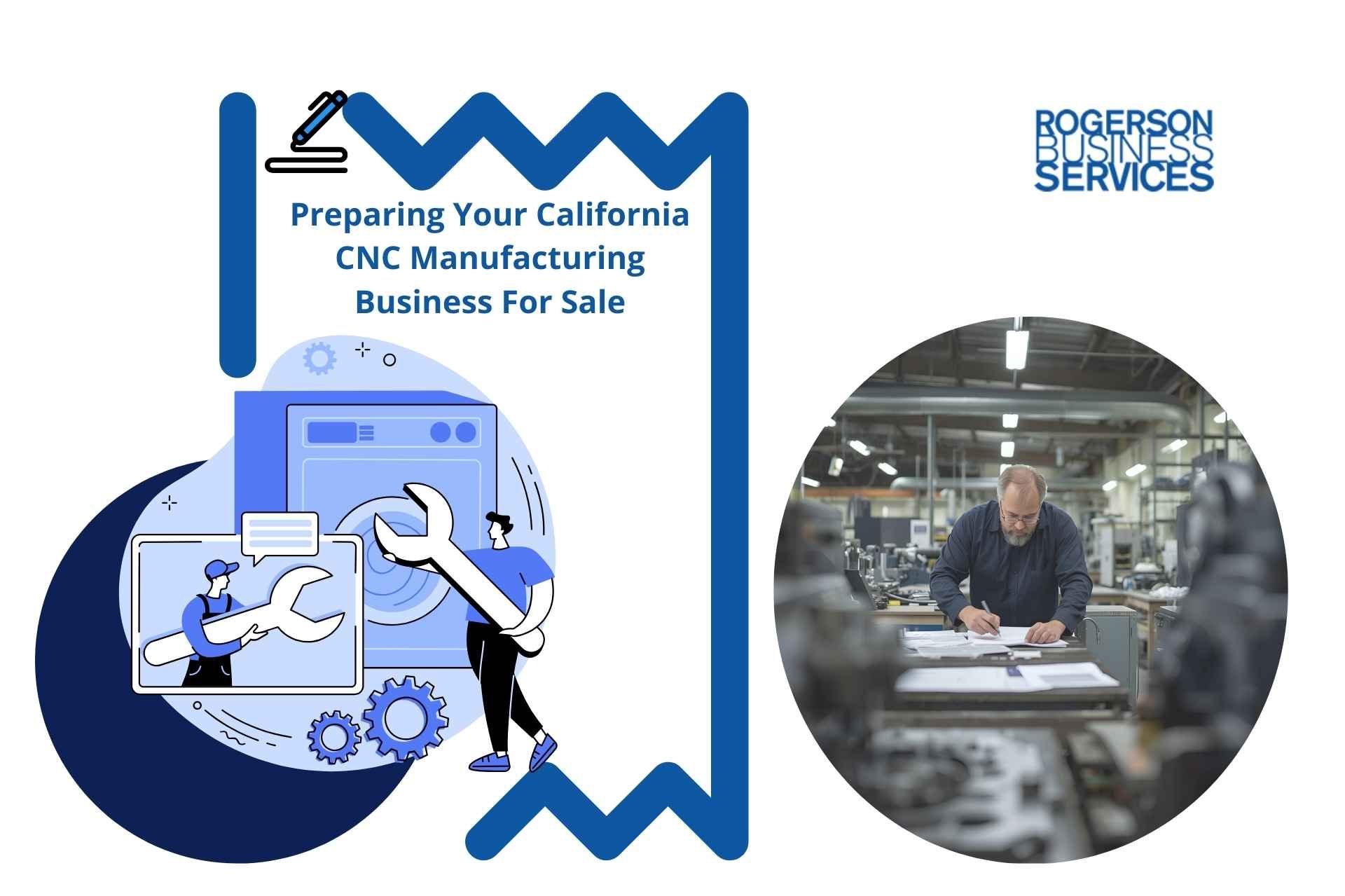The Legal Intricacies of Buy Sell-Side M&A in California
Buy Sell-Side M&A Deal Team

We often say that selling your business will take a deal team of experts. The M&A Advisor is like the quarterback of that team. He or she will make sure that everyone is talking to everyone else, and that all documents that need to be made available are handled securely and confidentially. There are also a lot of legal intricacies of buying and selling a business in California.
To also be brutally honest, the buyer and the seller often come to the table with different expectations, and the attorney can be a good person to negotiate the parties beyond those differences.
Despite these intricacies and frequent battles over legal expectations, there is often a debate over whether an attorney is absolutely necessary for the sale of every business. The answer in most cases is, “yes, an attorney or rather attorneys need to be part of the team.” Why do we at Rogerson Business services in the lower middle market segment believe that? There are a lot of reasons, but here are the major ones.
The Legality of Who
In the sale of most businesses, it’s pretty obvious who owns a California lower middle market business being sold and who is actually doing the buying. However, in some cases, this is not as simple as it sounds. There are countless times when a M&A broker will be approached by someone who doesn’t have any money, doesn’t have the authority of the buyer to purchase the business, and might just be looking for a possible business to sell to someone else.
In other cases, the “seller” may be a lower-level person in the company or a family member looking to convince the actual owner to sell by having an offer or offers on the table. This is why it is so important to know who legally controls the company being sold and who legally controls the entity who is purchasing a business.
An attorney can help validate any claims and ensure that the business can be legally sold.
What is Being Sold?
A seller can show a buyer around the building they are in and their business, but what is the buyer actually getting? When you sell or buy a business, there are two ways to go about it. The first is a stock sale, and the second is a sale of assets.
Which is better? It depends. In the Aerospace and Defense Industry, a stock sale is often better. This is because if a corporation is sold this way, any government contracts may continue with the new owner. If the business is sold as an asset sale, the contracts would legally have to be canceled and sent out for bid again.
This is true of a variety of businesses that engage in research, have specific leases or a lessor who does not want to continue the lease for some reason, or other legal contracts the owners want or need to pass between them at the change of ownership.
However, for many other businesses, an asset sale is more desirable, especially from the viewpoint of the buyer. They only inherit liabilities they agree to and they have a greater capacity for the depreciation of assets when tax time comes around.
Who can help you determine the best course? An attorney, often in combination with your M&A Broker. They can tell you what a lease says and means to both parties, how contracts will be handled and can ensure that all liabilities have been disclosed.
Even at the stage where both parties are just determining what is for sale, and how the sale will be structured, an attorney can be helpful to the process.
Confidentiality
One of the keys to selling a California lower middle market business successfully is confidentiality. This means that the buyer must agree not to disclose anything about the sale to anyone until it is final. The reason is, in part, that key employees or clients can leave or seek to change their agreements if they know the business is for sale.
This can potentially negatively impact the value of the business, and even disrupt the business altogether. A strong non-disclosure agreement with clear penalties for any violations is essential before either party exchanges any information with the other.
All in Agreement
If you have ever purchased a car, a home, or pretty much anything, you know that no job is finished until the paperwork is done. And there are a lot of forms you will fill out whether you are a buyer or a seller. Here are a few examples:
A term sheet
Is usually prepared by the buyer and is a step above a verbal offer. It states the terms a buyer would purchase the business under. Think of the car buying example: if you said to the salesman in the parking lot, “I’d give you $10,000 for that,” if the car is selling for $13,000 he can simply say no at that point.
However, if you go to the business manager’s office after your test drive and make a written offer of $10,000, the salesman may consider it or even come back with a counter-offer. Taking this a step further, term sheets are not legally binding but go into more detail than the written car offer, stating whether this will be a stock or asset sale, and how the buyer intends to pay for the business.
An indication of interest
Is usually used when there is more than one interested buyer, at least verbally, often in Merger and Acquisition type transactions. This can help the seller narrow a field of many interested buyers to a handful who will send them this document. Like the above, it is also not binding, and the language should indicate that.
The Letter of Intent and an actual Purchasing Agreement are much more legally binding. While you often can have your business broker supply you with some of the documents above, by the time you get to this point, you need to have an attorney at least look over these documents to ensure that you are protected legally.
These are just a few of the forms and agreements you will work with during the purchase process.
Conditions
Typically like anything else, the sale of a California lower middle market business comes with conditions and contingencies. While legally different things, in the sale of a business, they can basically be defined as events that must take place according to the buyer or seller, or features that must be present for the sale of the business to be successful.
Failure to meet any of these things can mean that the deal falls through. What are things that often break deals?
- The buyer cannot get financing.
- The lease for the premises where the business is located cannot be negotiated to the buyer’s satisfaction.
- Due diligence proves that the business is not as profitable as stated, or that potential liabilities are present.
- If the seller offers financing, information that comes to light revealing the buyer may not be able to pay off the purchase price.
There are other possible conditions as well. It is a good idea at this point to have an attorney make sure these conditions are both fair and that they are not based on unreasonable expectations.
A note here: this is why we often talk about the fact that you should negotiate your lease before selling your business: make sure your landlord will pass along the lease to a new tenant and what it will take for them to do so.
There is no worse feeling than a deal for your business falling through due to a stubborn landlord.
Representation and Due Diligence
At the start of the sale of a California lower middle market business, the seller will represent their business in a certain way. The buyer will perform something called “due diligence” to ensure that the claims the seller makes are true.
This is a very taxing process, and often quite time-consuming. We even talk about it in detail related to the sale of a manufacturing business in California in this helping guide to help you exit a California lower middle market manufacturing company.
There are a few keys to this process:
- First, we pride ourselves on honesty and integrity, but also to protect ourselves from potential lawsuits, we must represent your business honestly.
- The seller must be forthright and honest in any representations they make about the business, including liabilities and potential future lawsuits.
- The buyer should verify all such claims, and this often involves an attorney, who can research and verify any legal claims. Thorough due diligence is essential to successfully buying and selling a business.
- The seller needs to have all of their paperwork, legal and otherwise, in order. The seller, their attorney, and their accountant must be ready to answer inquiries promptly.
The buyer and seller should each have their own representation. Remember, your attorney will act in your best interest, and the other party’s attorney will act in theirs.
Licenses
Several California lower middle market businesses require licenses to operate, and some of those licenses are more complicated than others. Let’s take for example the asset sale of a California lower middle market construction business. In this case, the buyer must have a valid contractor’s license in California. They must also be licensed for the particular business they are buying.
This is also especially true when it comes to medical practices. Just because a doctor is licensed in another state does not mean they can operate in the state of California. They must first be licensed with the Medical Board of California. This process must be complete before closing.
Usually, the best source for this kind of information is the licensing agency, and an attorney who specializes in that area can often provide invaluable information quickly and efficiently.
The Tax Man
One of the primary differences between a stock sale and an asset sale is the tax implications. The buyer, of course, wants to be able to depreciate assets as much as possible and reap as many tax benefits as possible from the business purchase.
The seller wants minimal tax liability as well, and protection from future liability, and other protections. Generally speaking, an asset sale is better tax-wise for the buyer, and a stock sale is better for the seller. But as we stated above, there are exceptions. There are also legal considerations when it comes to your taxes.
Not only can an accountant help you weather these intricacies, but a tax attorney may also be able to help you protect yourself and your assets.
Escrow
One unique thing in California is the fact that for most lower middle market business sales transactions, escrow is required. There are a lot of reasons for this, and they are designed to protect both the buyer and the seller. There is also the Bulk Sale Law (BSL) that governs the sale of a business.
While many business brokers will try to do a lot of steps in this process without an attorney, it is generally best that both parties have an attorney review all documents before the final escrow and closing of the sale.
Attorney Pros and Cons
While there is some debate among M&A Advisors if you “need” an attorney or not, it is not without basis. Choosing the right attorney to navigate this process is vital. Why?
- Not all attorneys are created equally. The advantages of an attorney are:
- Due diligence is more thorough. The same is true when involving a good accountant
- Attorneys can spot potential legal issues before closing
- Attorneys can amend things at the last minute if need be, and speed closing
- Using an attorney lessens the likelihood of litigation
- Your M&A broker (and all parties) must follow the law
Those seem like all good things, right? Why would you not want to involve an attorney in such a legally complex process?
- Attorneys can be risk-averse, and essentially want zero liability for their client, either buyer or seller. It is virtually impossible to buy or sell a business with zero risk.
- They may refuse to use standard CAAB forms used by most California business brokers. Creating your own forms and documents can become expensive.
- Attorneys often don’t like escrow, especially if they represent the buyer. This can be a “deal killer” in some cases.
- Some attorneys may undermine the broker’s credibility and can be downright ruthless for whatever reason. Another reason to choose your attorney carefully.
- Your attorney may want to negotiate everything. This can be good, potentially saving you money, but over-negotiation or trying to negotiate non-negotiable fees, can be a deal killer too.
What is better? To have an attorney or not to have one?
The Final Takeaway
Here at Rogerson Business Service in the lower middle market segment, we highly recommend both buyers and sellers have an attorney involved to protect themselves. Selling a business is often one of the most complex and financially significant business decisions of an individual’s life. Their business is often a bit part of the seller’s retirement plan, and it is vitally important to get things right the first time.
Everything from escrow to taxes, leases to licensing, can have large legal implications. There are a lot of legal intricacies to buy sell-side M&A, and it is a process you should never go through alone. You need to surround yourself with an M&A deal team of professionals. That starts with a Certified M&A Broker, but it doesn’t stop there.
If you are a retiring business owner looking to exit your lower middle market business in California, here are five tips to get you started:
1. Don't wait until the last minute to start planning your exit. The process of selling a lower middle market business can take a long time, so it's important to start early.
2. Have a clear idea of what you want to get out of the sale. Know your goals and what you're willing to negotiate.
3. Choose the right type of buyer. Not all buyers are created equal, so do your research and find the right one for your business.
4. Be prepared for a lot of due diligence. M&A buy-side due diligence is when buyers will want to know everything about your business, so be ready to provide documentation and answer questions.
5. Be flexible with the terms and conditions of the deal. It's important to be open to negotiation to get the best possible deal for your business.
Rogerson Business Services, also known as, California's lower middle market business broker is a sell-side M&A advisory firm that has closed hundreds of lower middle-market deals in California. We are dedicated to helping our clients maximize value and achieve their desired outcomes.
We have a deep understanding of the Californian market and an extensive network of buyers, which allows us to get the best possible price for our clients. We also provide comprehensive support throughout the entire process, from initial valuation to post-closing integration.
Our hands-on approach and commitment to our client's success set us apart from other firms in the industry. If you consider selling your lower middle market business, we would be honored to help you navigate the process and realize your goals.
If you have decided to value and then sell your lower middle market business or still on the fence, get started here, or call toll-free 1-844-414-9600and leave a voice message with your question and get it answered within 24 hours. The deal team is spearheaded by Andrew Rogerson, Certified M&A Advisor, he will personally review and understand your pain point/s and prioritize your inquiry with Rogerson Business Services,
RBS Advisors.
Hey there! Can we send you a gift?
We just wanted to say hi and thanks for stopping by our little corner of the web. :) we'd love to offer you a cup of coffee/tea, but, alas, this is the Internet.
However, we think you'll love our email newsletter about building value and properly position your company before transition/exit your business ownership.
As a special welcome gift for subscribing, you'll also get our helping and educational guides, tips, tutorials, etc.. for free.
It's filled with the best practices for retiring serial business owners like Dan Gilbert, Larry Ellison, Warren Buffett, and many more.
Just sign up for our emails below.


